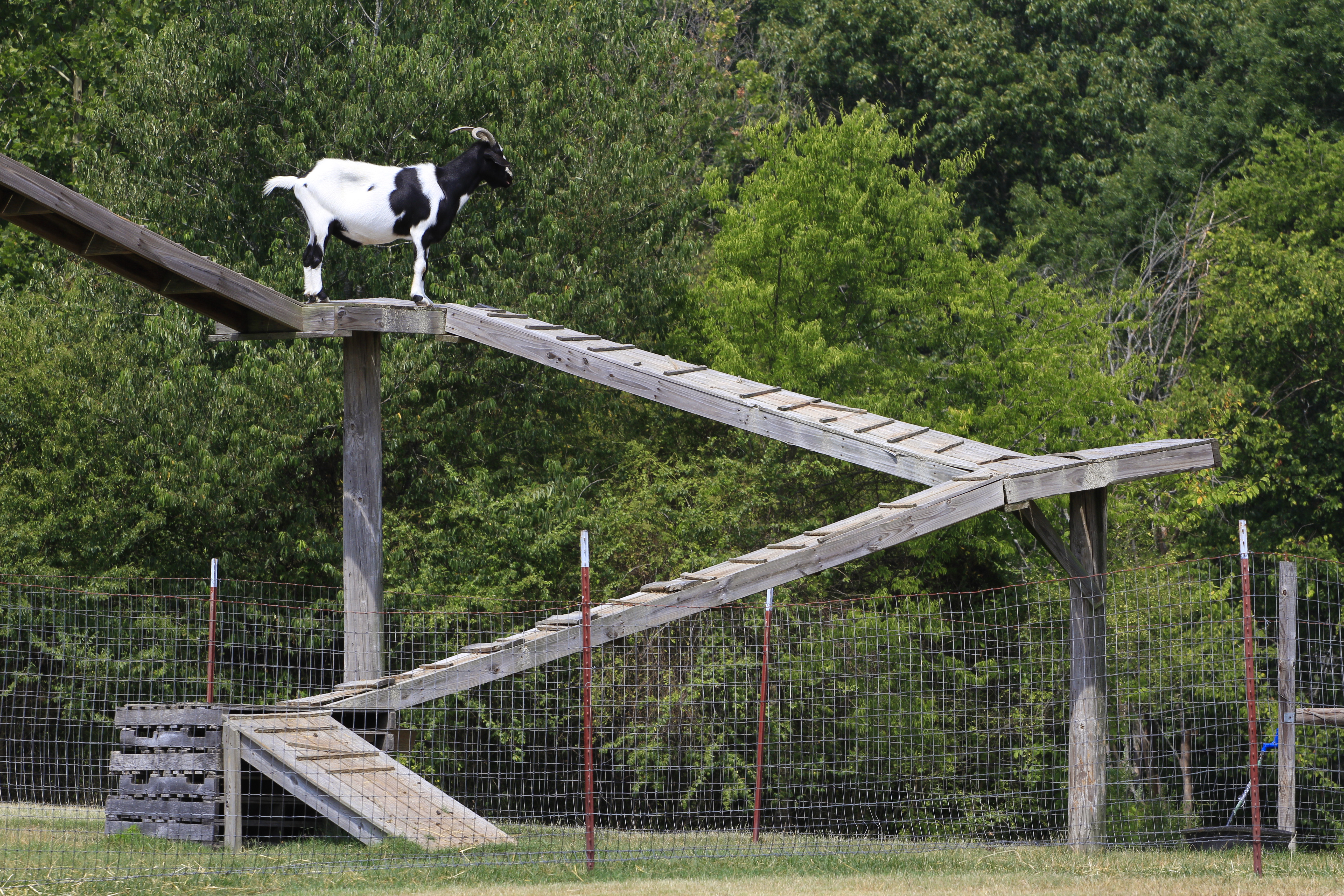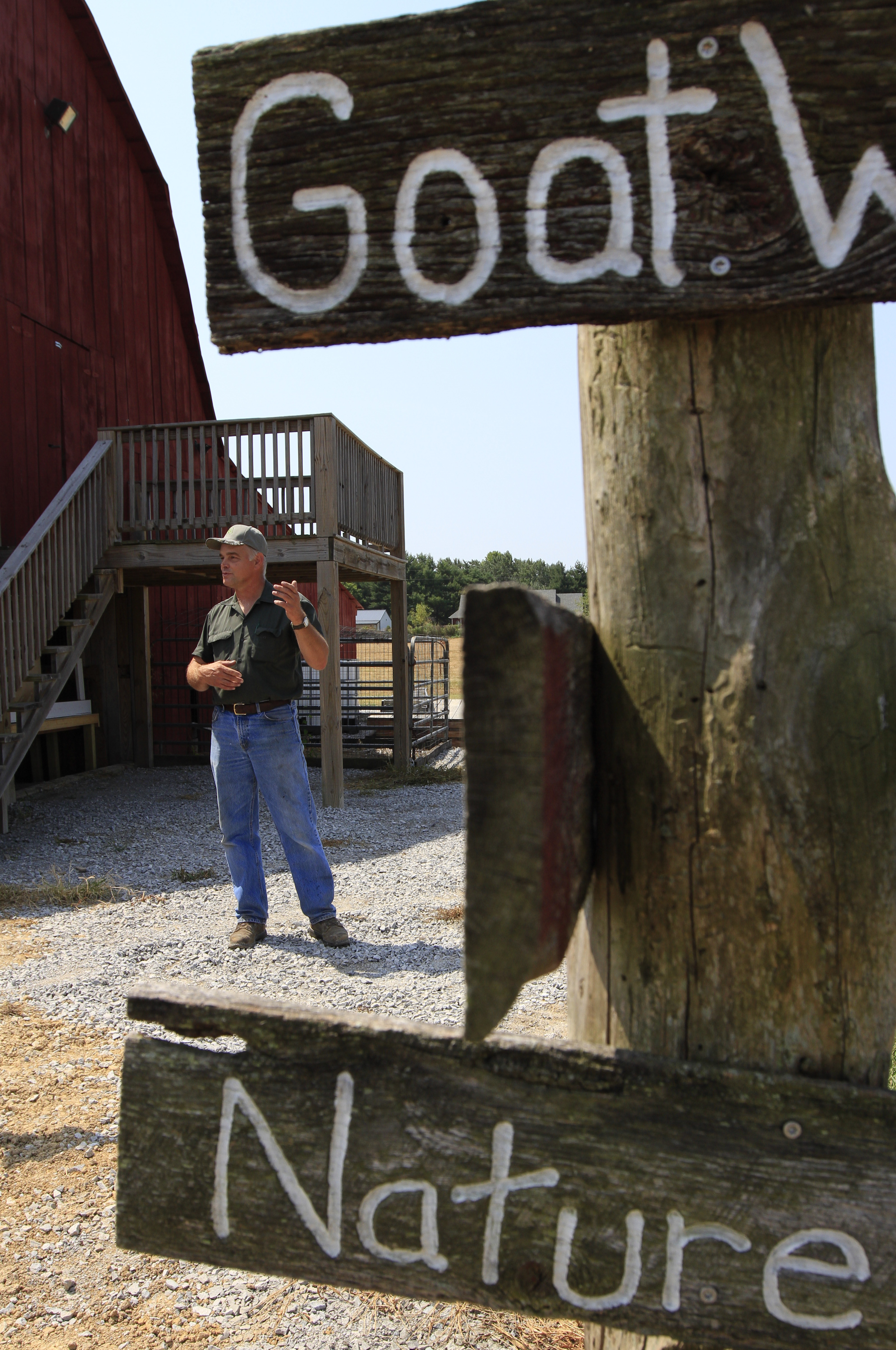TO LEARN MORE• Go to https://ag.tennessee.edu/cpa to find out more about the agritourism survey. The survey is voluntary for farmers, and responses are not linked to farmers or operation names.• Find information on Tennessee agritourism operations online at picktnproducts.org, visittnfarms.com, tnfarmfresh.com or tnvacation.com.
A decade ago, most farmers weren't interested in turning their farms into tourism operations. They didn't imagine people wanted to hand-pick blueberries or look inside the guts of a dairy farm.
But agritourism has grown, and state agriculture officials want to see just how much by updating a 10-year-old survey from the Center for Profitable Agriculture.
Agritourism "is bringing people to the farm for an experience," says Megan Bruch, marketing specialist with the University of Tennessee Extension's Center for Profitable Agriculture.
That could be anything from a pick-your-own farm, a winery, an on-farm retail market, educational activities to learn about agriculture or just getting out to "enjoy the scenery, fresh air or just some good farm fun," she said.
At Grandaddy's Farm in Estill Springs, Tenn., Andrew Dixon says agritourism adds a new business angle to crops that already include everything from honeybees, cattle and goats to soybeans, corn, pumpkins and winter squash.
The farm opened to the public seven years ago, said Dixon, 24, son of 2012 Tennessee Farmer of the Year Steve Dixon.
The younger Dixon spent part of last week at a North American Farmers' Direct Marketing Association event in Portland, Ore., where more than 300 farmers from the U.S. and Canada shared ideas.
"Agritourism, basically, is another crop for us," he said. "We've got corn, wheat and soybeans as our main row-crop operation, and agritourism is another way for us to diversify and to help spread out our risk."
Each fall, people flock to the farm for its tours, fall produce market, nature trail, hay rides, a variety of mazes, tractor-tire swings and a farm-oriented playground, he said.
The close contact with the public works to market the farm's products.
"Anytime you've got people coming to your farm, either doing a pick-your-own or having fun on the farm, that is agritourism," he said. "There are so many ways for farms to get into it."
Dixon said he's already filled out his survey and sent it in.
small but growing
The 2003 survey from the Center for Profitable Agriculture included responses from 48 percent of Tennessee agriculture operations.
Of those, 68 percent said they included agritourism in their operations. Another 16 percent planned to add agritourism, and 23 percent had no plans for it, according to Bruch.
The most common agritourism attractions in 2003 were on-farm retail markets, on-farm tours, pick-your-own farms, farm festivals and fairs, pumpkin patches, cut-your-own Christmas tree operations and on-farm petting zoos, Bruch said.
Many farmers offered three or fewer attractions and earned $25,000 or less a year from them, but 15 percent of operators made more than $100,000 in agritourism-related sales. Total projected revenue from agritourism was more than $21 million.
The state's tourism website lists many places in or near Chattanooga where people can take home their pick of the day, including the Johnson Family Farm and Sequatchie Cove Farm near Dunlap, Mayfield Farm and Nursery in Athens, Amazin' Acres of Fun in Sparta and Dennison's Family Farm in Elora.
Many also have an urban presence at the Chattanooga Market, state Tourism Development spokeswoman Cindy Dupree said.
The market, which opens in April, features farm produce from traditional farms, agritourism operations and craftspeople within a 100-mile radius, according to Dupree.
Operations such as Crabtree Farms, based on a few acres on 30th Street downtown; Signal Mountain Farm atop Walden's Ridge in Hamilton County; and Old McDonald's Farm in Sale Creek have to haul their produce only a few miles to market. Some area restaurants brag about using locally produced ingredients and specialty agricultural products.
According to Chattanooga Market figures, participating farmers and vendors had sales of $2.6 million in 2012. The market's regular vendors service restaurants in Chattanooga and Atlanta and wholesale products to regional Whole Foods Supermarkets and other farms in the Southeast.
Bruch said updating the survey will help quantify agritourism's standing in Tennessee. She expects to see larger numbers for visitors and sales.
"There are also quite a few new operations," she said. "I expect to see an expansion of offerings from operations such as new products and services we didn't see 10 years ago. We also see a wider variety of marketing methods being used by agritourism operators including social media."


